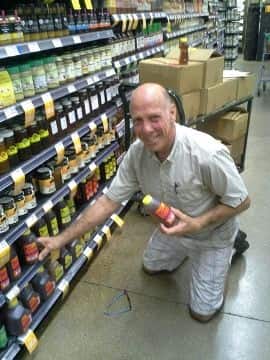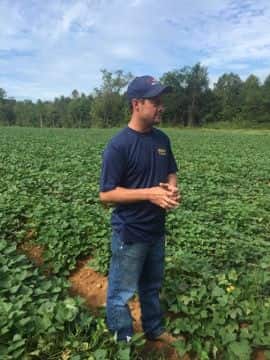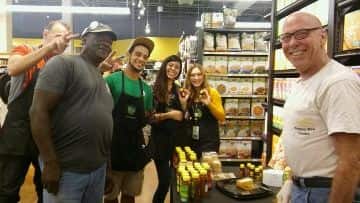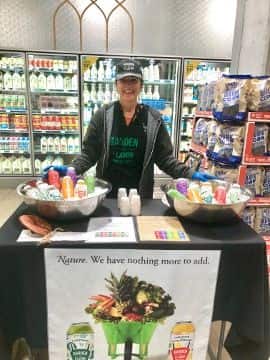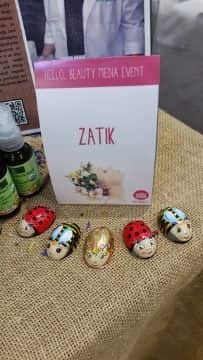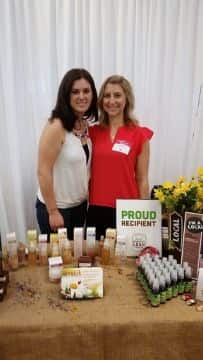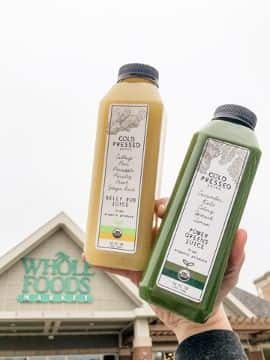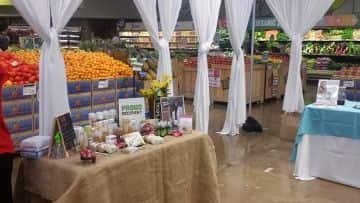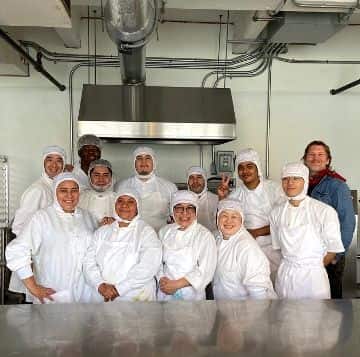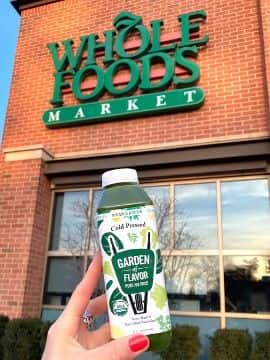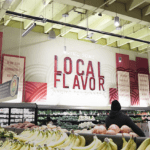Celebrating 15 Years of the Local Producer Loan Program
What does local mean to you? To us, it’s food that tastes of home and products that stem from scrappiness and innovation and lead to paradigm-shifting trends. It’s traditionally milled local wheat, small-batch heirloom popcorn, locally raised lamb, and deliciously chewy jerky made from — wait for it — mushrooms. Fifteen years ago, we launched our Local Producer Loan Program (LPLP), which celebrates local suppliers and the innovative products they bring to your community and table. It gives small, emerging brands a leg up and helps them learn the retail ropes so they can shine in their local landscape and beyond. The program was crucial when it started, but it’s just as important now as pandemic woes make it more challenging to run a small business. In this issue, we’re toasting to the small, but mighty producers, the Whole Foods Market Team Members who shepherd them as they grow, and the cutting-edge, delicious products that you’ll discover as a result. Here’s to your home turf and all of the magic that can — and does — come from it.
LPLP at 15: A conversation with Julia Bello & Erin Harper
Julia Bello: Well hi, Erin Harper! Thanks for this fireside chat today. So, we’ve known each other for a while since we were back in the Southwest region in very different roles. To get started, what drew you to the LPLP program?
Erin Harper: It was so long ago now – I’ve got to really go back in the day! The local movement was just starting to gain speed in the late 2000s, like 2007, 2008, 2009. I was personally passionate about being part of it. I had been with Whole Foods Market for about three years, primarily working in Team Member Services (Human Resources), but I was growing more and more interested in product and suppliers, particularly around local agriculture. The opportunity to run the LPLP came up in 2013, and I just figured this would be the most impactful way that I could be a part of the movement. So really it was Whole Foods Market’s vision, mission and core values aligning with what I was personally passionate about and it all kind of culminated in this dream job.
J: That’s awesome. I feel very similarly. Being drawn in by the mission and having the opportunity to see a different side of the business, the local side, and working with smaller suppliers — it was very different from my previous role on our private label team.
E: I mean, I’ll personally always be really thankful for it, because this was an absolute career change for me. I had studied human resources in college. I had been doing human resources for eight years before deciding that LPLP was the route I wanted to go. And I’m so grateful that I did because it’s what set me up to join the merchandising team and ultimately be in the role that I’m in today.
J: So, let’s talk about that. From your perspective and experience in working in merchandising now for many years, what do you see as some inherent challenges to starting a small business?
E: There are so many challenges, and I think most of our small business founders have no idea when they first set out, as there is no “set way” to succeed. The biggest pain point really is access to capital, and the second is access to buyers. What makes LPLP so special is that we can help entrepreneurs jump both of those hurdles — access to capital and access to customers. We have the capability of supporting small businesses very specifically and intimately in ways that more traditional lenders might not have the capacity to do.
J: Very true, and a huge value LPLP brings to suppliers. What are some of your favorite LPLP stories? Your favorite things that you reminisce about running the program, and maybe even things that have come back full circle from your time with LPLP to today in your merchant role?
E: Good question, Julia. I’ve had a few very cool full circle moments with different suppliers over the years. Just recently something came full circle with Alexandre Family Farms in Crescent City, California. I got the chance with LPLP in 2013 to visit the Alexandre family to discuss with them how they wanted to grow their family farm and business. At the time, they were selling eggs and some milk in the Northern California region only, but they — and we — saw an opportunity to be able to take this to a much more regional and national level; not just with eggs, but with other milk and milk products that they produce on their amazing independent, organic, regenerative agriculture farm.
So, we got the chance to go up there in 2013 and visit with their family, sit down to lunch in their home and walk the farm, which is one of the most magical places I have ever been to in my life. It’s on the California/Oregon border, surrounded by redwoods, close to the coast and what they’ve been doing there from a regenerative agriculture perspective is really extraordinary, and was frankly, at that time, way ahead of trend. That visit really solidified my love for agriculture and my desire to help celebrate and support independent family farms. Now in my current role as the Executive Leader of Merchandising for the Dairy team, I’ve started to work with the Alexandre family again. And now they’re a national supplier of this beautiful organic regenerative agriculture milk line, which if you haven’t tried it yet — taste it! — it’s delicious. And so it’s really, really cool to see nearly 10 years later, this conversation that was started around a lunch table and this little seed that was planted at a small egg farm in Crescent City, California has now become a national dairy supplier for us and are helping to elevate the entire dairy industry standards.
J: Ah, that’s so amazing! There are just so many examples of this exact thing within LPLP — suppliers starting small, maybe getting their first financing through an LPLP loan, and years later growing their business to a national level. I think it shows just how impactful our support through LPLP can be to these really incredible, early-stage suppliers.
E: Totally agree. I think that, especially in the early stages of LPLP and about the time that I started in on it, about 2013, it really started to feel like a community and a family of sorts of, really being way more than just the loan — being a stamp of validation and another access point with which to develop this strong supplier partnership with some of these up-and-coming brands. And you can really see how that’s panned out in 2020 with a lot of these suppliers still being super close with us and having successful businesses at a national level.
J: Absolutely. So, building on that, why do you think that LPLP continues to be an important part of Whole Foods Market’s commitment to suppliers and to local?
E: I think it’s because LPLP, after all these years, is still unique in what we’re doing here. It’s become like a stamp of validation that the supplier can use to help obtain additional capital through other loans and equity. We were a leader in this, when we started in 2007; it was well before lending and investments in the CPG industry were popular. And I think it’s gotten a little bit more commonplace where you’ve got, for instance, Shark Tank, which a lot of our LPLP recipients actually have gone through. But in some ways we really helped to demonstrate what’s possible within the food industry. And specifically, what’s possible with these small startups that oftentimes get overlooked.
J: What, from your perspective, was the LPLP program created to achieve and, how do you see that as being successful?
E: How I saw it was the program was created to give us a window into our local food communities and allow Whole Foods Market to stay at the forefront of food trends. And that’s so imperative to us as a company. And it’s so important to our customers as well that we stay ahead of those trends and we identify these brands that celebrate their communities. I think LPLP specifically has so much to do with that feeling. Even though LPLP is oftentimes behind the scenes and our customers don’t even know about it, LPLP has a very specific role in creating the infrastructure that supports our Local programs. We still have Local Foragers in the fields who can spot something new, and through LPLP, we can support those producers through retailing, through merchandising, through financial access that they might not otherwise have. That’s incredibly uncommon in the industry.
J: Agreed. What is it that you wish Whole Food Market’s customers knew about the program?
E: I just wish they knew about the program. We have so many mission-driven programs at Whole Foods Market, which is awesome, and we have so many stories to tell. LPLP is this workhorse behind the scenes that most customers never get the chance to really hear about or know about. And that’s okay, really the story should be focused on the local supplier and their story. We should be celebrating that. But I do wish that customers just knew the kind of work that’s been done to keep this local food movement going as a result of the financial efforts we have put behind this program, and the many, many notable suppliers who have been a part of it.
J: Yes, agreed! I think it’s incredible how many suppliers we’ve supported through the years with LPLP loans and how many of them continue to be successful and to sell at Whole Foods Market. It’s really an honor that we’ve been a part of their story. So many LPLP recipients have told me “LPLP was a game changer for our business”. And what makes this work even more special is that we’ve got a lot of LPLP suppliers that are taking an active role in building their communities through their businesses. I think that really speaks to what the whole local movement is about, right – fostering community and supporting the communities where we live and work.
E: I can’t remember who it was, and this was years and years and years ago, but one of our Local Foragers used to say, “Banks look at your past, LPLP and Whole Foods Market looks at your future.” I love that piece about the work we do. LPLP is almost an anti-bank; we are really placing the belief in repayment of loans on what the business is, what the product is, and our belief in the supplier’s potential, as opposed to anything from just their financial history, which is pretty special when it comes to lending.
E: I think going back to your question, which was what we wish customers knew, is that one of our core tenets is win-win-win partnerships with our suppliers. And LPLP is the most tangible aspect that you can possibly imagine of this tenet. We have this program that sets up our suppliers for success, sets us up with knowing what the pipeline is and knowing where trends are going, and creates these deep, real relationships with high potential suppliers.
J: One of my favorite stories so far in working on LPLP has been working with Raised Gluten Free, a women-led pie company out of NorCal. Their first loan was before my time on the program back in 2016, when they were just launching into Whole Foods Market in the Northern California stores. But in 2020, I was able to help connect them with the Global Bakery team who was coincidentally looking for a national supplier for gluten-free pies for the holiday season. They ended up winning the business, which was super rewarding and exciting. It’s a really cool story of collaboration between the brand, LPLP, and the Global Bakery merchants that resulted in this win-win-win partnership. The supplier won, Whole Foods Market won, and ultimately, our customers won because now we can offer gluten-free pies in all stores for the holidays!
E: I love that. And Julia, for you in the role right now, it cannot go unsaid how important your specific role is, serving as that sort of internal broker for those global merchant teams to know what’s going on. Because our jobs are super busy, they encompass a lot of different regions and processes and programs. And so for you to say, “Hey, you know, Global Team, this is an opportunity that you might want to look into.” Making those connections, you’re the conduit of that pipeline. And I think that should just not go unsaid how important that is.
J: Thanks for that, Erin. I really try to keep all the stakeholders involved and aware of LPLP loans, throughout all the different levels of Whole Foods Market, whether it’s merchandising or marketing. My goal is to help elevate our LPLP suppliers and help tell their stories and what makes them special.
E: So, I was the second person in the role. The loan program started in 2007. I came in 2013. The first iteration of LPLP was very much loan-focused. You do the loan, here’s the money, here’s your repayment. And that was pretty much it. But now, it’s so much more than that; you can plug these suppliers into this community — connecting them to all sorts of stakeholders who might not have them under their current purview.
J: Yes! LPLP often acts as a facilitator between the different merchandising groups within Whole Foods Market. My goal as we continue to evolve LPLP is that the conversations we have when working on a loan provide an opportunity to come together with the merchants to better determine what do we, as a group, think about this supplier longer term. What is their roadmap for success at Whole Foods Market? What is their potential, what are we willing to commit to? What does their growth trajectory look like? Do we see them as just staying as a regional supplier? Do we think, wow, this is a high potential supplier that we could envision bigger things for? What does responsible growth look like for them? Having these conversations early on and getting buy-in creates clear expectations, for both us and for the supplier.
E: I, as a merchant, I really love that buy-in. I think that it is super, super important to set expectations for LPLP recipients early on. If you are a category that is saturated, or really competitive, then it’s important as a brand to evaluate how you can stand out. Every small supplier thinks that they need to get as big as possible because that’s been “success” in the CPG industry in the past. But sometimes those conversations need to be, as opposed to getting big nationally, sometimes it’s going deep, right? It’s about exploring different aspects of becoming the most relevant within your community, as opposed to becoming a national brand. And if you can get everyone aligned on what that looks like, then you can have those conversations with the supplier early and it helps them to steer their actual business decisions. They think “Maybe I don’t have to be another national supplier, but instead I want to really go deep with the community that I live in by expanding into different products and offerings, expanding into different categories, so when you think of my community, you associate my brand as a relevant and beloved part of this specific geography.” There is so much power to local love and products with a sense of place.
“LPLP is almost an anti-bank; we are really placing the belief in repayment of loans on what the business is, what the product is, and our belief in the supplier’s potential, as opposed to anything from just their financial history, which is pretty special when it comes to lending. “
Erin Harper, Former manager, Local Producer Loan Program
Local Producer Loan Recipients in Action:
Will Betts on Why Local matters
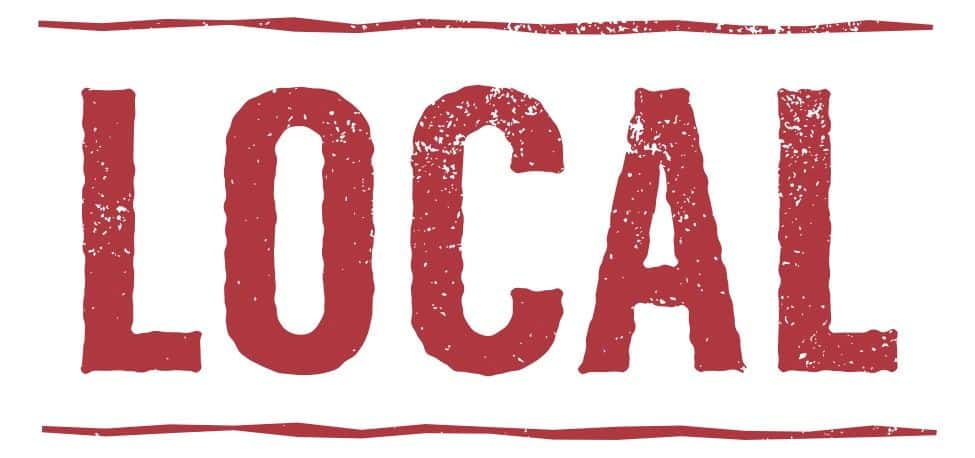
For more than 40 years, Whole Foods Market has supported local makers, producers, growers, and entrepreneurs, and they have supported us too. Our local suppliers are integral to our mission to nourish the people and the planet. Local has always been baked into our DNA, an important ingredient deeply intertwined in almost every single one of our aisles since our very first day. We are known as the destination for discovering the best local products that meet our unparalleled Quality Standards.
More than half of global shoppers say it’s more important to shop local now than before the pandemic. And with that in mind, we are seeing a growing number of grocers across the industry add more local products to their assortment. But at Whole Foods Market, we do things a little differently.
We focus on deep win-win-win relationships with our suppliers.
This year marks the 15th anniversary of the Local Producer Loan Program (LPLP), which provides strategic financing that might not otherwise be available to smaller suppliers. This process often begins with our team of foragers that meet with farmers, fishers, cheesemakers, bakers and more in different communities with the mission of helping local producers grow and land on Whole Foods Market’s shelves. We have issued more than 360 loans that total around $26 million. Some of your favorite brands that are now successful and ubiquitous across multiple retailers, such as Justin’s Nut Butter and Vital Farms, received a loan from Whole Foods Market when they first started out.
Caring about our local communities is one of our Core Values.
Whole Foods Market’s passion to support our communities goes beyond “serving and supporting a local experience” in our stores. Several of the local products we sell are LPLP loan recipients that are making a big impact in the communities we operate in. For example, in Oregon, Olympia Provisions is a second-chance employer, and in New York, Greyston Bakery operates on an open-hiring model to provide those struggling to prosper an opportunity to thrive.
Whole Foods Market is a champion and incubator of mission-aligned local and emerging brands. Even as we’ve grown to more than 528 stores across the country and joined the Amazon family, we continue to invest in our local suppliers. Our selection today includes 30 percent more locally sourced products and producers than in 2016. Despite the uncertainty of the pandemic during 2020, we remained consistent and committed to local, introducing more than 950 new local brands in our stores. As we look to the future, local remains integral to our business strategy. With more than 40 new stores and many LPLP loans in the pipeline, local will continue to have a strong presence in all Whole Foods Market locations.
About Will Betts
Will Betts is the Vice President of Local Merchandising at Whole Foods Market. Will leads a team of Local Foragers dedicated to curating the best local assortment for our stores. The local team recognizes the importance of having experts actively spend time developing deep roots and connections to the communities where our stores are located.
Will joined Whole Foods Market almost 25 years ago, spending most of the time in regional merchandising roles. Over the course of his career, he has had the opportunity to move from Washington, DC to Chicago to Seattle and now down to Austin. Through his travels he has worked closely with many local suppliers across the U.S. and Canada. These experiences have given him a deep understanding of the important role our local suppliers play in serving our customers, and the important role Whole Foods Market can play in facilitating the growth of our suppliers.
LPLP by the Numbers
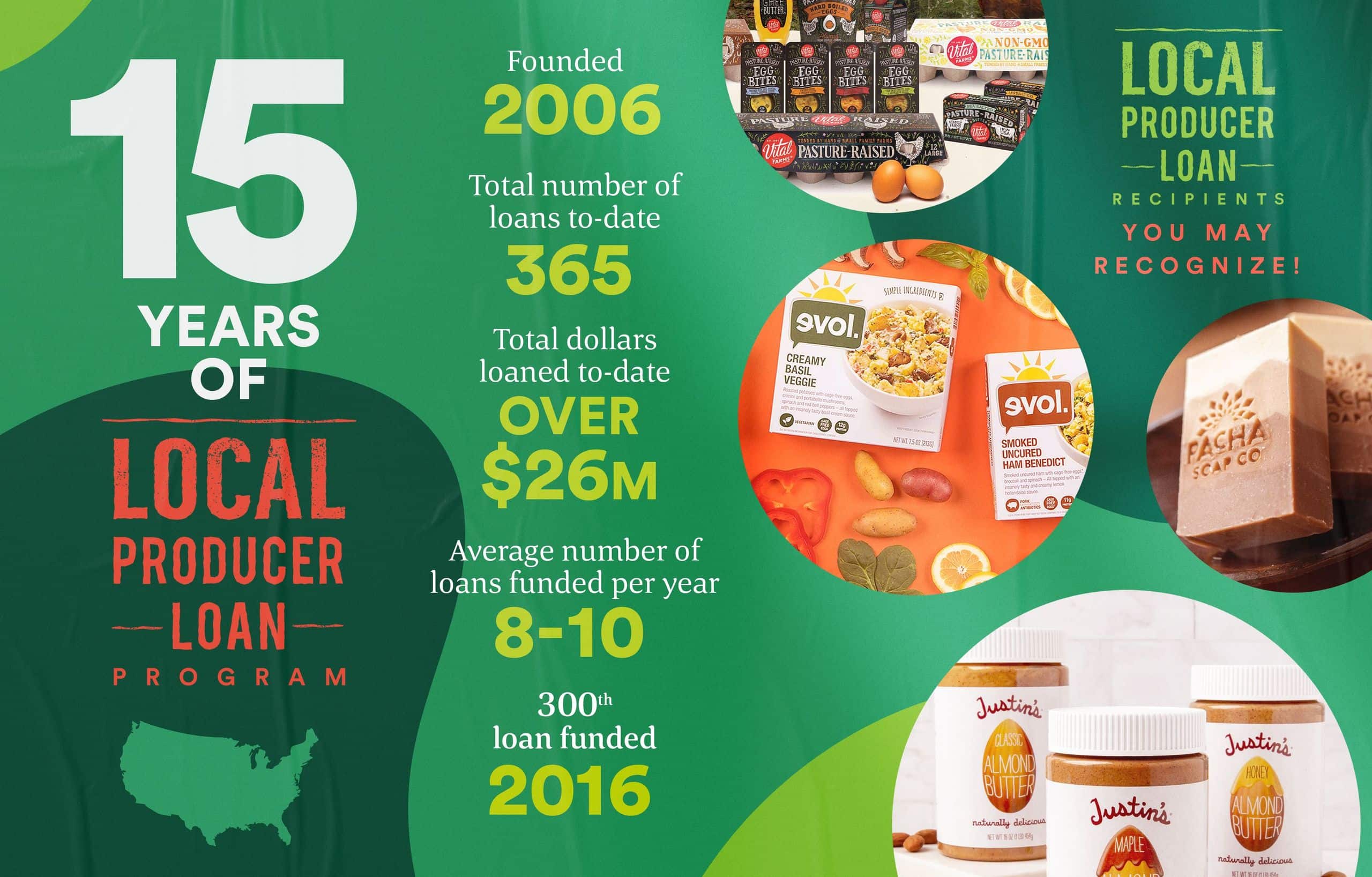
Local Producers Give Back:
A strong local food system supports a robust and responsive community. That’s just one reason why we support local supplies with our Local Producer Loan Program. We’ve always been proud to stand beside our suppliers. In addition to creating innovative, high-quality products that satisfy and delight our customers, many suppliers are active in their local communities. But their outpouring of support during the COVID-19 pandemic has made us prouder than ever.
Some began donating products and supplies to health care workers. Others switched up their production lines to manufacture needed supplies, ramped up their giving to those in need or worked to feed the hungry. Here are a few examples of local suppliers who stepped up to support their communities! While not all of these suppliers are loan recipients, they are all wonderful examples of why local food systems are so important!
Luke’s Lobster
New York, New York
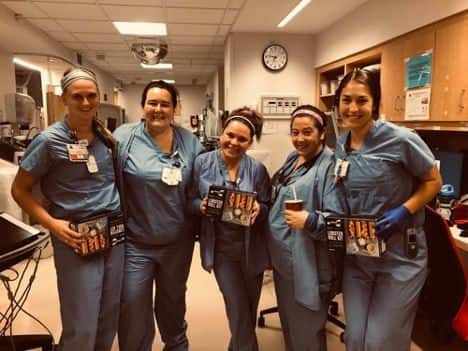
Since its inception, Luke’s Lobster has been supporting the lobstering community in many ways, including the return of a royalty from each package sold in our stores. Now it’s supporting health care workers, too.
During the pandemic, the company has been donating lobster rolls and soups to hospital workers on the front lines in cities where it has lobster shacks. In a related effort, the four lobster-fishermen’s co-ops Luke’s works with donated lobster that the company then made into lobster lasagna to feed frontline workers in Maine.
“We always look to give back in impactful ways to the communities we operate in, whether that’s the small fishing communities along Maine’s coast or the larger urban communities where our shacks are,” said Luke Holden, CEO and founder of Luke’s Lobster. “Donating to our frontline workers during the pandemic was a way for us to make a small but meaningful contribution and also allow our guests to share in the giving.”
Pacha Soap
Hastings, Neb.

When increased demand for hand sanitizer led to a shortage of alcohol, Pacha Soap worked with Nebraska’s governor to extend federal regulations for the production of ethanol-based sanitizer. The company then started producing the product for hospitals and nursing homes across the country, giving away more than 15,000 bottles. It has also given 5,000 bars of soap to organizations serving the vulnerable.
“In times of economic uncertainty and health concerns related to the COVID-19 virus, it’s been a privilege to share donations of hand sanitizer and soap with institutions, businesses and individuals,” said Andrew Vrbas, the organization’s CEO and co-founder. “Through its partnerships, Pacha has been spreading proper sanitation and hygiene through soap and hand-washing education to hundreds of thousands around the globe for the past seven years. For us to be able to give back at home in the same way has been a ray of hope for us and, I hope, for the recipients as well. Though most of our impact has been with our partners internationally, it has been a good reminder to me of the impact Pacha can have in the United States as well.”
Sushi Maki
Miami
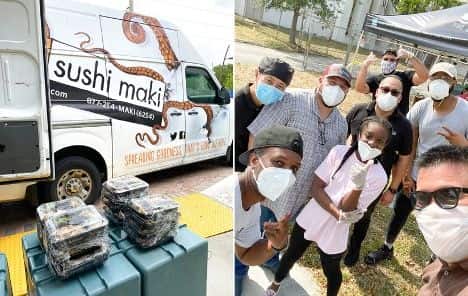
Sushi Maki has partnered with Canton Chinese Restaurants and other local organizations to give away 13,000 meals to individuals who have been greatly affected by the pandemic.
“We believe it is our duty to support those affected most by ensuring they receive a meal,” said Abe Ng, the organization’s founder and CEO. “It’s a privilege to come together as a community to help take care of each other during an uncertain and unprecedented time. Sushi Maki and Canton are grateful to be a part of this effort. These donations are possible through the generosity of each of these foundations and the time, labor and distribution of our teams.”
Liquid I.V.
Marina del Rey, Calif.
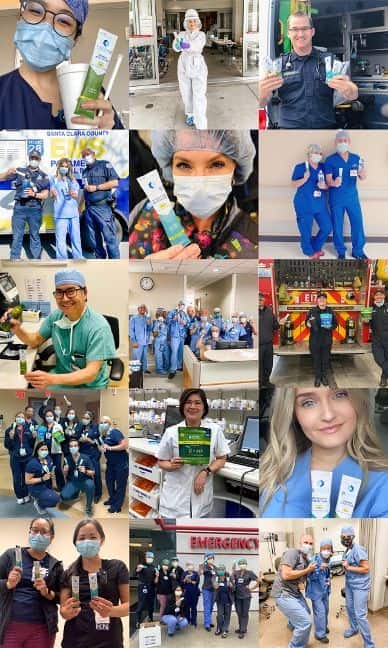
Liquid I.V. makes powder supplements that can be dissolved in water to support sleep, hydration and energy. Through its COVID-19 Relief Initiative, it has pivoted its sampling program to give more than 2 million supplement packets to health care workers, first responders, hospitals and organizations on the front lines of this global health crisis.
“It might be a little cliché,” said Brandin Cohen, the organization’s founder and CEO, “but man does it hold true in these times that tough times don’t last; tough people do. We really are facing real adversity as humans right now. We will make it through the other side, and we will make it through even stronger.”
Wilcox Family Farms
Roy, Wash.

When Wilcox Family Farms found itself with a lot of product and few schools or restaurants needing it, Wilcox didn’t let it go to waste. Instead, the company donated 600,000 pounds of liquid eggs — which adds up to more than 7 million eggs — to Washington state food banks and shelters. It has also committed to donating more eggs throughout the pandemic.
“The community has been supporting us all these years buying our eggs. It feels good to be able to give back to them,” said Brent Wilcox, the company’s CEO. “When we realized that we had millions of eggs with no home, we were faced with a decision: either we dispose of these eggs and save money or go ahead and process them into liquid and donate it to local food banks. “In the end, it was an easy decision to make sure that the people who could use these eggs the most got them.”
One Mighty Mill
Lynn, Mass.

One Mighty Mill — producer of fresh-milled flour and products like pretzels, bagels and tortillas — has been doing something small but powerful in its hometown.
“In March, we had to close our mill and bakery to the public,” said Jon Olinto, the organization’s co-founder. “Our mill is in Lynn, Mass., a community in crisis due to a devastating per capita rate of COVID-19. We’ve always offered a 15 percent ‘neighborhood’ discount to try and help feed our community fresh, wholesome food. To try and keep feeding our neighborhood, we’ve kept a basket full of fresh bagels and cream cheese at our front door every day for folks to grab for free.”





